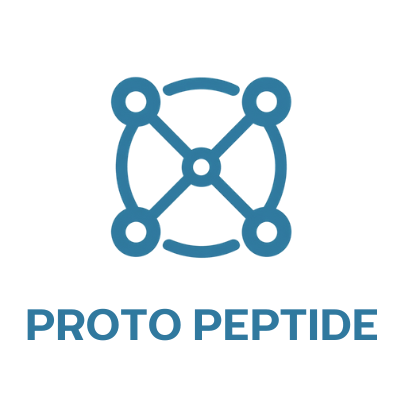How to Reconstitute Peptides: A Step-by-Step Guide with calculations
Peptides usually arrive in lyophilized (freeze-dried) powder form inside a sealed vial. Before they can be used for research purposes, they must be reconstituted with a liquid—most commonly bacteriostatic water—to create a usable solution.
This guide will walk you through:
-
What you’ll need
-
How to calculate your water volume
-
How to reconstitute step-by-step
Disclaimer: This article is for informational purposes only. It does not provide medical advice. Always follow the laws and guidelines in your country, and consult a qualified professional for any human use.
What You’ll Need
-
Lyophilized peptide vial
-
Bacteriostatic water (BAC water)
-
Alcohol wipes
-
Insulin syringe or sterile syringe with needle
-
A clean working surface
Step 1: Understanding the Math
The goal of reconstitution is to create a solution where you know exactly how many micrograms (mcg) or milligrams (mg) of peptide are in each unit (ml or IU) of liquid.
Basic Formula:
Example 1:
You have 5 mg of peptide powder in the vial, and you want 1 mg per ml concentration.
1 mg = 1000 mcg, so 5 mg = 5000 mcg.
If you want 1 mg/ml (1000 mcg/ml):
Result: Add 5 ml of bacteriostatic water.
Example 2:
You have 2 mg of peptide, and you want 200 mcg per 0.1 ml (2000 mcg/ml).
Convert 2 mg → 2000 mcg.
Result: Add 1 ml of bacteriostatic water.
Quick Reference Table:
| Peptide Amount | Desired Concentration | Water to Add |
|---|---|---|
| 5 mg | 1 mg/ml | 5 ml |
| 5 mg | 2 mg/ml | 2.5 ml |
| 2 mg | 1 mg/ml | 2 ml |
| 2 mg | 0.5 mg/ml | 4 ml |
Step 2: The Reconstitution Process
-
Clean Your Area
Wipe your work surface and hands with alcohol. -
Remove Caps
Remove the plastic caps from both the peptide and bacteriostatic water vials. Wipe the rubber stoppers with alcohol swabs. -
Draw the Water
Using a sterile syringe, draw the exact volume of BAC water you calculated. -
Inject Slowly
Insert the needle into the peptide vial and inject the water slowly down the glass wall (not directly onto the powder). This helps prevent foaming or damaging the peptide. -
Swirl Gently
Do not shake. Swirl or roll the vial between your fingers until the powder is fully dissolved. -
Store Properly
Keep the reconstituted peptide refrigerated unless otherwise specified.
How to Calculate Your Own Dose
Once reconstituted, you can calculate how much solution contains your desired dose.
Formula:
Example:
You have 5 mg peptide + 2 ml BAC water = 2500 mcg/ml.
If your desired dose is 500 mcg:
Final Tips:
-
Always use sterile technique to avoid contamination.
-
Double-check your math before injecting any liquid into the vial.
-
Label your vial with concentration and date of reconstitution.
